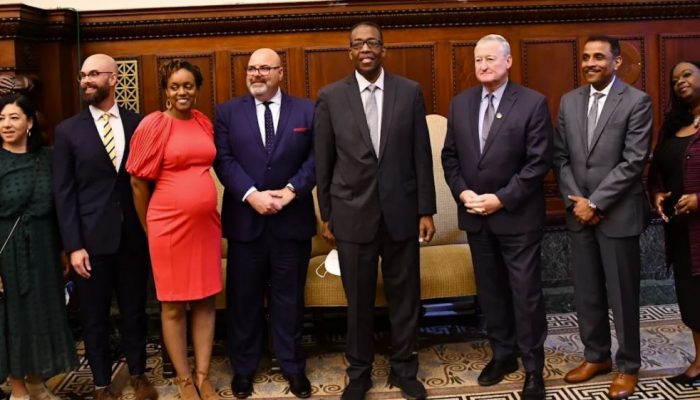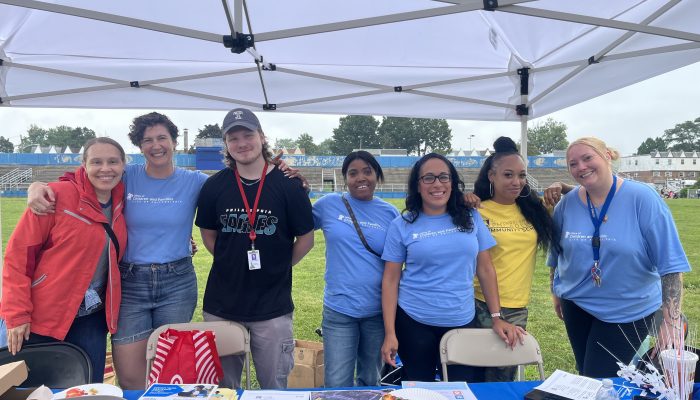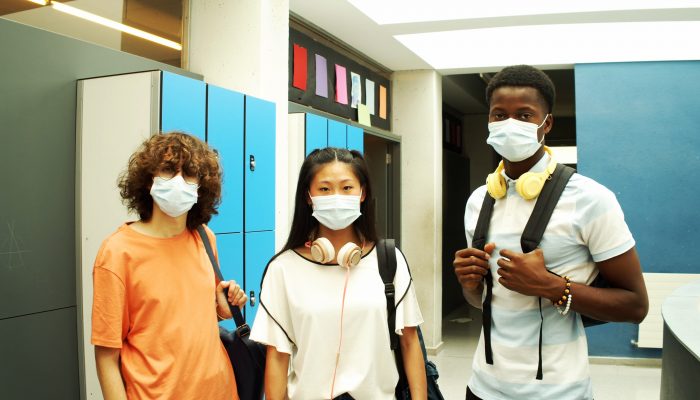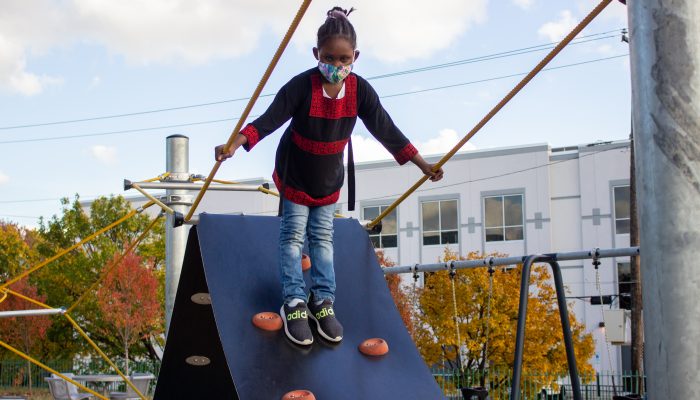“Today’s announcement will forever change the trajectory of this amazing community and bring more equitable access to resources to a community that has gone without what they deserve from their neighborhood school for too long.”
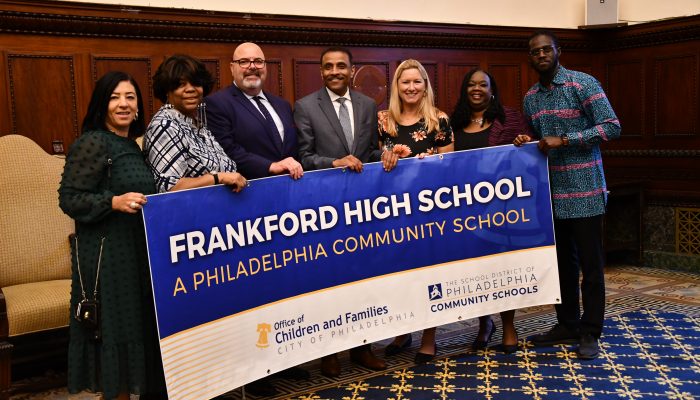 Those were the words of Michael Calderone, Principle at Frankford High School (at left, third from left), as his school was selected as one of the three newest Community Schools in Philadelphia.
Those were the words of Michael Calderone, Principle at Frankford High School (at left, third from left), as his school was selected as one of the three newest Community Schools in Philadelphia.
Mayor Jim Kenney, joined by Deputy Mayor Vanessa Garrett Harley, Council President Darrell L. Clarke and new Superintendent Tony Watlington, announced the addition of three new Community Schools, bringing the total to 20.
The new Community Schools are:
- Add B. Anderson Elementary School in West Philadelphia,
- Frankford High School on Oxford Avenue in Frankford, and
- Paul L. Dunbar School in North Philadelphia.
Community Schools are a partnership among the City of Philadelphia, the School District of Philadelphia, and school communities to remove barriers to learning and support the success of each student.
In each Community School, a Coordinator supports strategic partnerships and programs that promote wellness, stability, and learning opportunities for students, families, and neighbors. Each Community School also offers social service and attendance case management services, along with out-of-school-time activities. Because each community is unique, the specific services offered by Community Schools vary depending on the needs of a school.
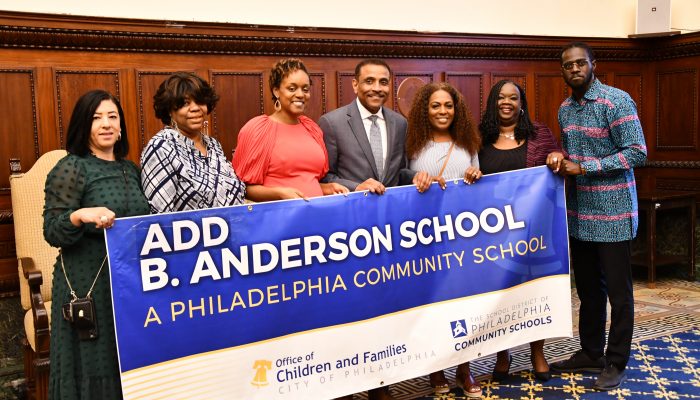 For Laurena Zeller, Principle of Add B. Anderson Elementary School (at right, third from left), the Community School designation means a focus on wrap-around services for her students.
For Laurena Zeller, Principle of Add B. Anderson Elementary School (at right, third from left), the Community School designation means a focus on wrap-around services for her students.
“We believe in the development of the whole child and their beauty at Anderson,” said Zeller. “We applied to be a Community School because we envision our school being an oasis and ‘one stop hub’ where our students, families and community members could have access to a multitude of resources that would be beneficial to them.”
The long-term goal of Community Schools is to ensure that every student gets the most out of their education and ultimately graduates high school being college- and career- ready, and that communities are healthy, safe, hopeful, and supportive.
“A critical part of Community schools is the foundation of core services. This year we’ve expanded those services to include social services case management, attendance case management, and Out-of-School Time programming, making Community Schools a true hub of support services,” said Vanessa Garrett Harley, Deputy Mayor for the Office of Children and Families.
For Mayor Kenney, this expansion continues a key program initiative of his first term aimed at supporting families and communities where they are. “We launched the first cohort of nine Community Schools in 2017. The goal then, and now, is to meet the needs of the whole child and provide support to both students and families as well as resources to the community. I’m excited to continue building the network of Philadelphia Community Schools with the addition of Add B. Anderson, Frankford High School, and Paul L. Dunbar School.”
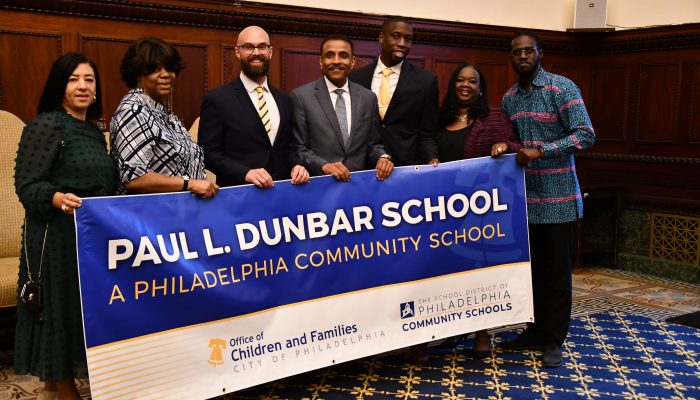 And the Principle of Dunbar, Paul Mina (at left, third from left), is proud to be a part of that growth, both as part of a City-wide program, and his own school community.
And the Principle of Dunbar, Paul Mina (at left, third from left), is proud to be a part of that growth, both as part of a City-wide program, and his own school community.
“Our school’s acceptance as a Community School represents an acknowledgement of the hard work we have engaged in to create a collaborative, community environment at Paul L. Dunbar School and provides the resources, support, training, and network to expand and enhance that work,” Mina said. “Dunbar’s motto is ‘One Band, One Sound,’ and by becoming a Community School, our band is getting bigger, and our sound will become much stronger.”
There are currently 17 City-designated Community Schools, serving nearly 10,000 students. Community Schools are supported by the Philadelphia Beverage Tax. The announcement comes shortly after the sixth anniversary of City Council’s approval of the tax.

